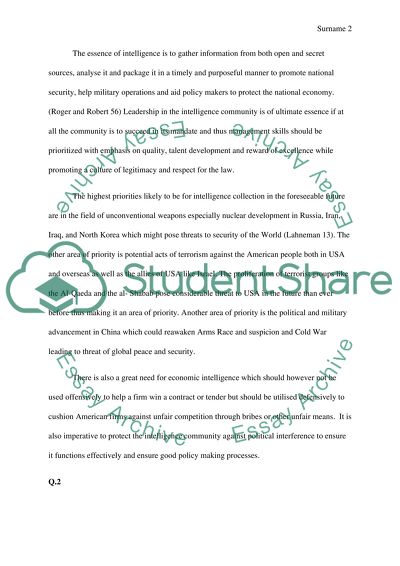Cite this document
(“Essay on Intelligence Example | Topics and Well Written Essays - 1000 words - 1”, n.d.)
Retrieved from https://studentshare.org/history/1486839-essay-on-intelligence
Retrieved from https://studentshare.org/history/1486839-essay-on-intelligence
(Essay on Intelligence Example | Topics and Well Written Essays - 1000 Words - 1)
https://studentshare.org/history/1486839-essay-on-intelligence.
https://studentshare.org/history/1486839-essay-on-intelligence.
“Essay on Intelligence Example | Topics and Well Written Essays - 1000 Words - 1”, n.d. https://studentshare.org/history/1486839-essay-on-intelligence.


